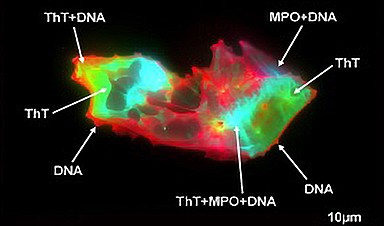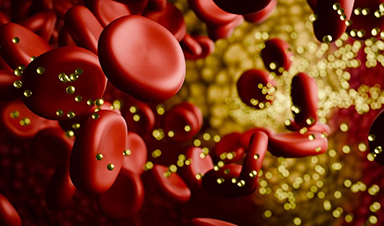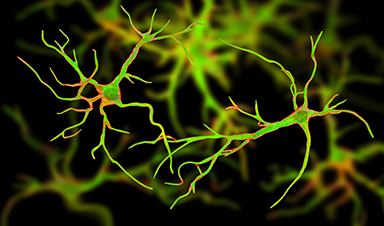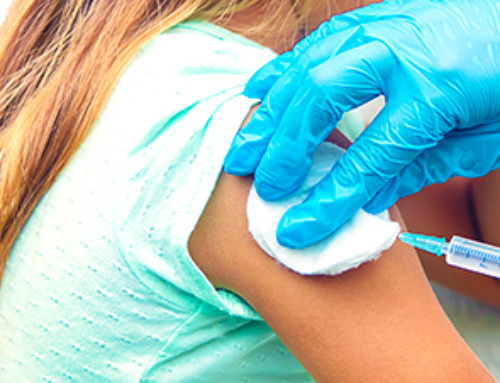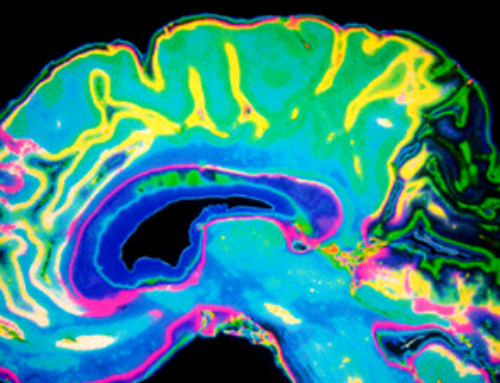A new study indicates that face masks did not significantly lower Covid-19 infection risk after the initial Omicron wave, highlighting the need for adaptable strategies and further research as risk factors evolve.
New findings from the University of East Anglia suggest that wearing face masks did not reduce the risk of Covid infection after the initial rise of the Omicron variant. An analysis of official data indicated that the risk factors for infection changed notably when the dominant Covid variant in the UK shifted from Delta to Omicron in December 2021.
These included wearing a mask, a history of foreign travel, household size, whether people were working or retired, and contact with children or over-70s.
Lead author Professor Paul Hunter, of Norwich Medical School at the University of East Anglia (UEA), said: "Early in the pandemic there were many studies published looking at risk factors for catching Covid, but far fewer studies after the first year or so. Our research shows that there were changes in some risk factors around the time that the Omicron BA.2 variant became dominant."
Co-author Dr. Julii Brainard, of UEA's Norwich Medical School, said: "This isn't totally surprising because laboratory evidence suggests that the Omicron variant was better able to infect the cells lining the upper respiratory tract than previous variants and so be more transmissible. Management of infection risk needs to be agile, adapting to epidemic development and better-quality information when it emerges. To prevent infections we need to have a good view of which factors might be most or least relevant. If those factors can change, we need to be alert to that happening."
Methodology and Key Findings from the Data
The researchers analyzed data available from the Office for National Statistics (ONS) Covid survey in England, which compared infection rates with an ongoing household survey of the population to estimate how many people had infections. From November 2021 to May 2022, the ONS also asked people questions about their circumstances and habits to see if those factors could be linked to the risk of positivity.
Professor Hunter added: "We used this dataset to look for constancy or change in the importance and direction of potential risk factors for testing positive. We applied a statistical method called meta-regression to do this."
The study found that changes to risk factors included:
- In November 2021, always wearing face masks at work, school, or in enclosed spaces was associated with a reduced risk of being infected in both adults and children, but after the first Omicron wave, it was not.
- Living in a house with five or more people was a risk at the beginning but by the end of the study period, people in larger households (four and above) had negligibly greater risk than people living in singleton households.
- Early overseas travel was not associated with increased risk, but later on, it was.
- Working in health or social care or in contact with others, was often found to be important in the first year of the pandemic, but was not associated with an overall higher or changing risk of infection in the study period.
- Being of ethnic minority was strongly associated with increased risk in the first few months of the UK epidemic, but was associated with lower risk and no significant trend change during the study's full monitoring period.
- Being retired was associated with reduced risk compared to those in work overall, but any protective effect had disappeared by February 27, 2022, which coincided with the start of the second Omicron wave.
- By the end of February 2022, it became apparent that there was a decrease in risk for adults living with children aged 16 or under.
- People under 70 who lived with someone aged 70 or older initially had a lower likelihood of testing positive, but this protective effect diminished by about mid-February, 2022.
The researchers said the balance of evidence is that wearing face coverings reduces transmission of respiratory infections in community settings and reduces transmission of Covid-19. The question, however, is by how much.
Conclusion and Implications for Future Research
A systematic review of pre-pandemic evidence and analysis of original survey data during the COVID-19 pandemic both indicated that mask-wearing could or did reduce transmission of SARS-CoV-2 by about 19pc. But these conclusions were derived mainly from data prior to the emergence of Omicron variants.
This latest research found that prior to Omicron BA.2, never wearing a mask was associated with an increased risk of around 30pc in adults and 10pc in children. But by the second Omicron wave (mid to late February 2022 onwards) there was no protective effect from mask-wearing in adults and possibly an increased risk of infection in children.
Professor Paul Hunter commented: "It should not be a surprise that risk factors change during a pandemic due to a highly infectious disease with a short duration of immunity like Covid. So-called SEIRS (Susceptible, Exposed, Infected, Recovered, Susceptible) models of epidemics predict that as such an infection becomes endemic risk factors that powered the epidemic in its early stages become less important and the rate at which people lose immunity becomes more important in driving infection rates."
Dr Brainard added: "A lot of potential risk factors for catching Covid didn't change during this period, and that's important to know too. We offer some possible explanations for why the changes may have happened, but we would need more focused research to understand for sure why there were changes in some risk factors."
Reference: "Changing risk factors for developing SARS-CoV-2 infection from Delta to Omicron" by Paul R. Hunter and Julii Brainard, 15 May 2024, PLOS ONE.
DOI: 10.1371/journal.pone.0299714
The study was funded by the National Institute for Health and Care Research (NIHR) Health Protection Research Unit in Emergency Preparedness and Response at King's College London in partnership with the UK Health Security Agency (UKHSA) and in collaboration with the University of East Anglia.
News
Researchers highlight five pathways through which microplastics can harm the brain
Microplastics could be fueling neurodegenerative diseases like Alzheimer's and Parkinson's, with a new study highlighting five ways microplastics can trigger inflammation and damage in the brain. More than 57 million people live with dementia, [...]
Tiny Metal Nanodots Obliterate Cancer Cells While Largely Sparing Healthy Tissue
Scientists have developed tiny metal-oxide particles that push cancer cells past their stress limits while sparing healthy tissue. An international team led by RMIT University has developed tiny particles called nanodots, crafted from a metallic compound, [...]
Gold Nanoclusters Could Supercharge Quantum Computers
Researchers found that gold “super atoms” can behave like the atoms in top-tier quantum systems—only far easier to scale. These tiny clusters can be customized at the molecular level, offering a powerful, tunable foundation [...]
A single shot of HPV vaccine may be enough to fight cervical cancer, study finds
WASHINGTON -- A single HPV vaccination appears just as effective as two doses at preventing the viral infection that causes cervical cancer, researchers reported Wednesday. HPV, or human papillomavirus, is very common and spread [...]
New technique overcomes technological barrier in 3D brain imaging
Scientists at the Swiss Light Source SLS have succeeded in mapping a piece of brain tissue in 3D at unprecedented resolution using X-rays, non-destructively. The breakthrough overcomes a long-standing technological barrier that had limited [...]
Scientists Uncover Hidden Blood Pattern in Long COVID
Researchers found persistent microclot and NET structures in Long COVID blood that may explain long-lasting symptoms. Researchers examining Long COVID have identified a structural connection between circulating microclots and neutrophil extracellular traps (NETs). The [...]
This Cellular Trick Helps Cancer Spread, but Could Also Stop It
Groups of normal cbiells can sense far into their surroundings, helping explain cancer cell migration. Understanding this ability could lead to new ways to limit tumor spread. The tale of the princess and the [...]
New mRNA therapy targets drug-resistant pneumonia
Bacteria that multiply on surfaces are a major headache in health care when they gain a foothold on, for example, implants or in catheters. Researchers at Chalmers University of Technology in Sweden have found [...]
Current Heart Health Guidelines Are Failing To Catch a Deadly Genetic Killer
New research reveals that standard screening misses most people with a common inherited cholesterol disorder. A Mayo Clinic study reports that current genetic screening guidelines overlook most people who have familial hypercholesterolemia, an inherited disorder that [...]
Scientists Identify the Evolutionary “Purpose” of Consciousness
Summary: Researchers at Ruhr University Bochum explore why consciousness evolved and why different species developed it in distinct ways. By comparing humans with birds, they show that complex awareness may arise through different neural architectures yet [...]
Novel mRNA therapy curbs antibiotic-resistant infections in preclinical lung models
Researchers at the Icahn School of Medicine at Mount Sinai and collaborators have reported early success with a novel mRNA-based therapy designed to combat antibiotic-resistant bacteria. The findings, published in Nature Biotechnology, show that in [...]
New skin-permeable polymer delivers insulin without needles
A breakthrough zwitterionic polymer slips through the skin’s toughest barriers, carrying insulin deep into tissue and normalizing blood sugar, offering patients a painless alternative to daily injections. A recent study published in the journal Nature examines [...]
Multifunctional Nanogels: A Breakthrough in Antibacterial Strategies
Antibiotic resistance is a growing concern - from human health to crop survival. A new study successfully uses nanogels to target and almost entirely inhibit the bacteria P. Aeruginosa. Recently published in Angewandte Chemie, the study [...]
Nanoflowers rejuvenate old and damaged human cells by replacing their mitochondria
Biomedical researchers at Texas A&M University may have discovered a way to stop or even reverse the decline of cellular energy production—a finding that could have revolutionary effects across medicine. Dr. Akhilesh K. Gaharwar [...]
The Stunning New Push to Protect the Invisible 99% of Life
Scientists worldwide have joined forces to build the first-ever roadmap for conserving Earth’s vast invisible majority—microbes. Their new IUCN Specialist Group reframes conservation by elevating microbial life to the same urgency as plants and [...]
Scientists Find a Way to Help the Brain Clear Alzheimer’s Plaques Naturally
Scientists have discovered that the brain may have a built-in way to fight Alzheimer’s. By activating a protein called Sox9, researchers were able to switch on star-shaped brain cells known as astrocytes and turn them into [...]






